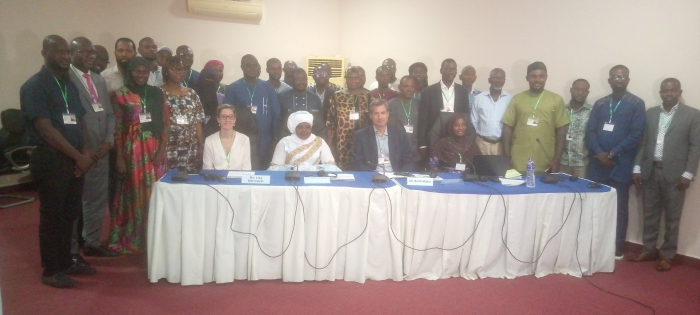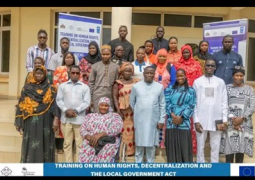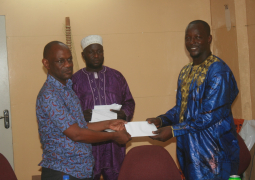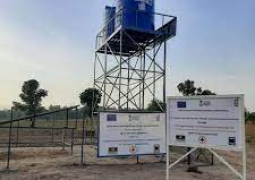
The participatory, technical working session was organised to discuss and nurture the transformative pilot process and methods to ensure effectiveness and efficiency in achieving national climate action priorities. The forum was part of the MRV for Climate Action Programme supported by Environment and Climate Chance Canada (ECCC.)
Rohey John Manjang, minister for Environment, Climate Change and Natural Resources in her remarks at the opening on Friday said, the most accelerated global climate risks combined with other international and national stressors has created a challenging developmental context, particularly for developing countries.
She pointed out that the effects of climate change is clearly demonstrated with increased average temperatures and erratic rainfall, noting that this has over the years affected the wellbeing of Gambians and the economy with increased flooding causing damages to our roads and other valuable infrastructure, decreased agricultural production, reduced food security, and drought spells already threatening the health and wellbeing of people.
According to her, these cumulative factors continue to multiply the stresses associated with high levels of poverty and fluctuating economy.
However, she said in response to these impacts, the Government of The Gambia has designed and implemented development projects guided by their various strategic documents such as the National Climate Change Policy, Strategic Programme on Climate Resilience and the Nationally Determined Contributions, among others.
Madam Manjang noted that research has shown that all countries, not just Least Developed Countries need an MRV system across all sectors, and levels of government that help them to improve decision making, optimise their policies, and guide their investments and expenditures on infrastructure and services.
Lisa Marroquin, Nova Sphere Canada MRV for Chimate Action Programme said the MRV for Climate Action Programme is multi-million dollar programme supported by Environment and Climate Change Canada and supports partner countries’ national development priorities and capacities to plan, finance, and achieve GHG emission reductions and the implementation of low-carbon solutions to local development challenges.
She added that towards these goals, each country has prepared a National Evergreen Roadmap that outlines approaches to accelerate climate actions; strengthen and enhance multi-level climate governance, develop a more effective and efficient MRV system, and mobilise climate finance and investment.
Jainaba Fatty, in deputising for the Premanent Secretary at the Ministry for Environment, Climate Change and Natural Resources said the MRV for climate action will create a substantial difference in our national and regional actions against the impacts of Climate Change.
Read Other Articles In National News

NCCE expands community training on governance, human rights in GBA
Nov 21, 2025, 12:08 PM




